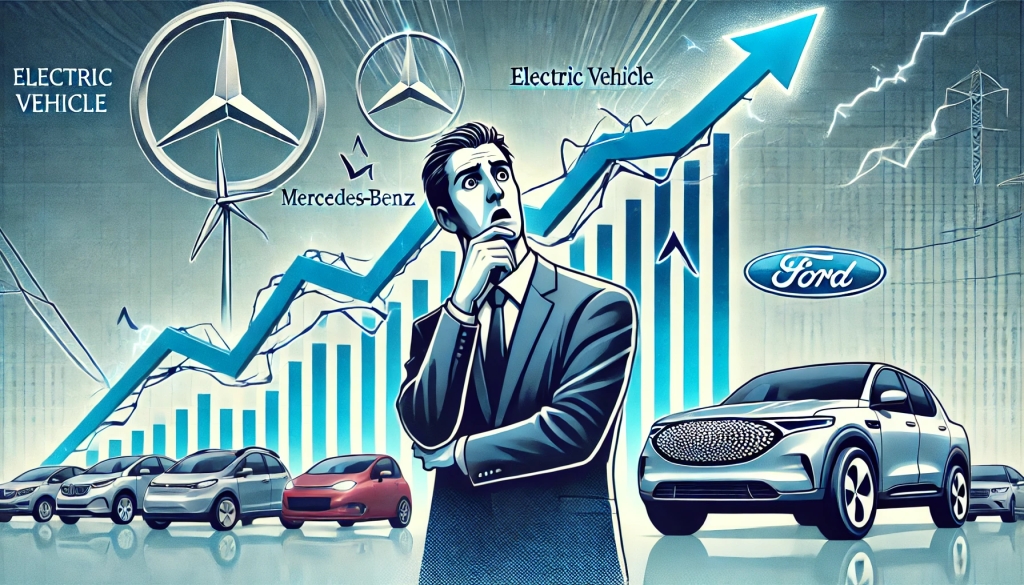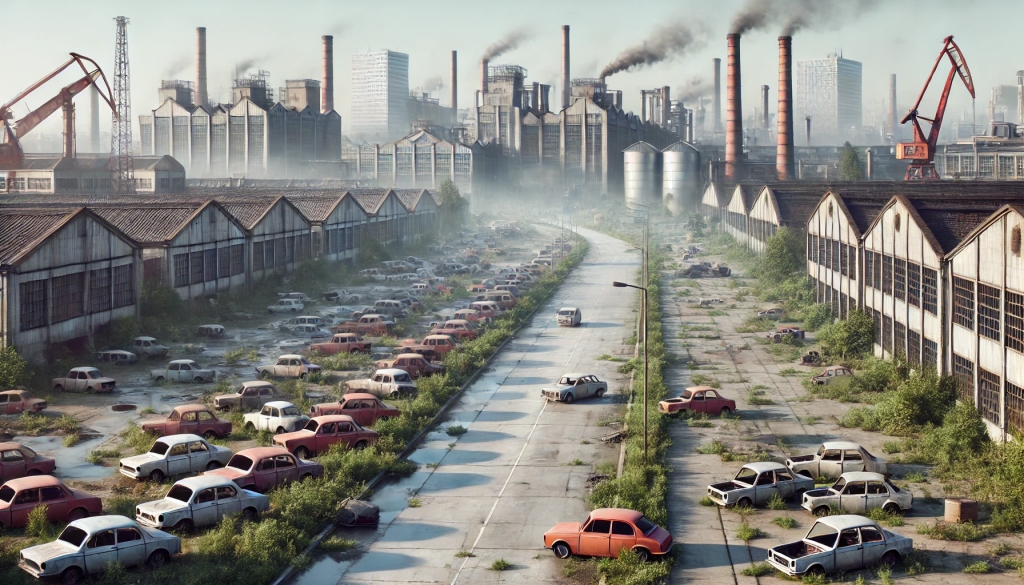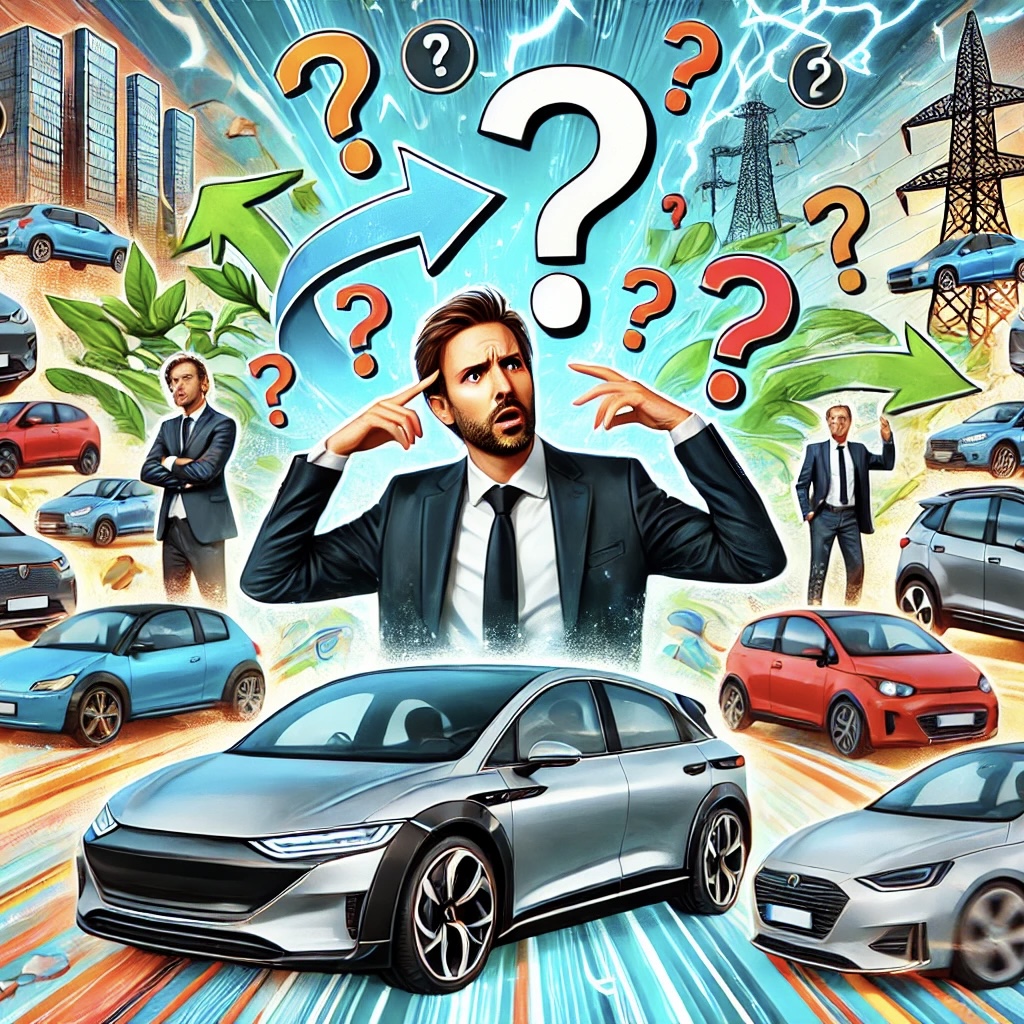Electric Boom or Bust? What’s Really Going On?
In 35 years of covering the car industry, I’ve never seen such confusion and uncertainty as we’re experiencing now. Traditionally, when sitting down with car company executives, they’d be confident, thinking years ahead with clear plans. That’s no longer the case. Ask them about the future these days and you can see them struggling to resist an urge to shrug and fling their hands in the air in confusion. So what gives?
Legacy car companies have a century-long history of producing petrol and diesel vehicles, mastering the market, and technology. Over the years, cars have progressively improved in safety and engineering, but fundamentally, the internal combustion engine remained the same. However, the advent of electric vehicles (EVs) and the impact of governmental policies have left the industry in disarray.
One of the key factors contributing to this turmoil is the transition to electric vehicles. The growth of EV sales, influenced by legislative mandates and consumer preferences, seemed unstoppable. Governments worldwide are pushing for a rapid shift to EVs, aiming to reduce carbon emissions and combat climate change. Yet, despite these efforts, we’re witnessing an apparent slowdown in EV sales growth just as manufacturers were gearing up for a major transition.
“EV sales growth is expected to drop to 16% in 2024, down from a staggering 64% in 2023.”
The Electric Vehicle Paradox
The statistics paint a stark picture. EV sales growth is expected to drop to 16% in 2024, down from a staggering 64% in 2023. Even in China, where EVs and their components are predominantly produced, growth is predicted to fall from 36.5% in 2023 to just 11.1% in 2024. This slowdown is not just a minor blip but a significant shift that has left manufacturers like Mercedes-Benz, Ford, and GM rethinking their strategies.
Mercedes-Benz, for instance, had ambitious plans to go all-electric by 2030. However, facing a 21% drop in net profits in Q4 2023 and other economic pressures, they’ve backtracked, now expecting electrified vehicles to make up only 50% of their sales by 2030, instead of the previously planned 100%. Similarly, Ford has slowed its EV transition plans, balancing investments between EVs and traditional vehicles to manage costs and production challenges.

Geopolitical and Economic Challenges
The industry is also grappling with geopolitical factors and economic uncertainties. Trade tariffs, such as those imposed by Europe and the US on Chinese EVs and components, add another layer of complexity. These tariffs, intended to protect local industries, make Chinese EVs significantly more expensive, disrupting supply chains and market dynamics.
Moreover, the semiconductor shortage, which severely impacted global car production, is slowly easing, but certain chip types remain in high demand, causing continued supply issues. This shortage, coupled with rising material costs, has driven up vehicle prices and production inefficiencies, adding to the financial strain on automakers.
The Impact on Jobs and Economies
These upheavals have profound implications for jobs and economies, particularly in regions heavily reliant on automotive manufacturing. The shift towards EVs, while environmentally necessary, poses a threat to traditional automotive jobs. Electric vehicles require different manufacturing processes, fewer parts, and less labour compared to internal combustion engine vehicles. This transition could lead to significant job losses, particularly in countries like Germany, Japan, and the US, where the automotive industry plays a crucial economic role.
For instance, Ford anticipated that its transition from internal combustion engines to EVs could result in the loss of a quarter of its workforce. Similarly, regions dependent on automotive manufacturing could face economic instability if legacy automakers fail to adapt quickly enough to the new market demands.

Consumer Behaviour and Market Dynamics
Consumer behaviour is also shifting, adding another layer of complexity. Younger generations are increasingly interested in car subscription services over traditional ownership models, reflecting changing attitudes towards mobility and financial priorities. The cost of car ownership, including insurance and maintenance, has become prohibitively high for many, especially in urban areas.
This shift is reshaping the market, with a growing number of consumers preferring on-demand mobility solutions. However, the industry must balance these new models with traditional sales to remain viable.
The Future of the Car Industry
The future of the car industry appears to be a melting pot of multiple mobility solutions. While the transition to electric vehicles is inevitable, it is unlikely to be the sole solution. Hydrogen fuel cells, alternative fuels, and advancements in battery technology will all play a part in shaping the future of mobility. The industry must adopt a flexible approach, investing in various technologies to meet diverse consumer needs and environmental goals.
Legacy car makers that fail to adapt quickly may face closure or be absorbed by more agile competitors, particularly those from emerging markets like China and India. The industry is at a critical juncture, where strategic decisions made today will determine the viability and success of companies tomorrow.
The car industry is in crisis like never before. It’s facing unprecedented confusion and uncertainty. The transition to electric vehicles, coupled with geopolitical and economic challenges, is reshaping the landscape. How the industry navigates these changes will determine its future, with significant implications for jobs, economies, and the environment.
“Legacy car makers that fail to adapt quickly may face closure or be absorbed by more agile competitors.”
Follow all my channels https://linktr.ee/browncarguy
Get my book! https://amzn.eu/d/adFimgB
If you enjoyed this review sponsor my content from as little as £3 at
https://ko-fi.com/browncarguy
Big Thanks to my Supporters!
CraftLab (https://www.CraftLab.my)
Collecting Motors (https://collectingmotors.com)
Design5IT
Tom Conway-Gordon (https://www.instagram.com/anycoloursolongasits_black/)
And others! 🙏🏽☺️
Discover more from Brown Car Guy
Subscribe to get the latest posts sent to your email.

Good post, but I would add synthetic, non-petroleum based fuels running in ICE-powered cars as the best solution of all. I know very few people agree with me, but I have often been on the opposite of consensus and still been right.
LikeLike